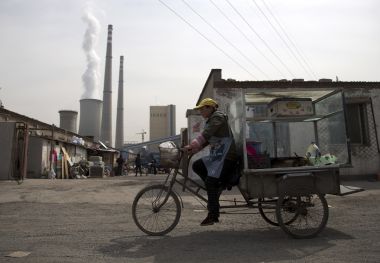Why rich countries must prepare to pay for climate change

International agency Christian Aid has warned that well-off nations will need to open up their "climate cheque books" to fund resolutions that will see carbon emissions reduced around the world.
The Bonn climate talks concluded on Sunday, during which both China and the USA announced commitments to reducing their emissions, which signified a huge shift in the negotiation process.
However, experts warn that commitment alone is not enough.
"Negotiators did their job here in Bonn, but now ministers and heads of state need to address the elephant in the room; the lack of climate finance," says Christian Aid's senior climate change advisor, Mohamed Adow.
"Climate funding from rich countries has been promised for years, but now there are only 18 months left until the deal is set to be hammered out in Paris.
"Without finance on the table before Paris it's hard to see how we can avoid a stalemate, which puts a deal in danger. Poor countries are asking developed nations to stick to their promises on finance before committing to cuts in emissions."
Adow asserts that "it's time for developed countries" to offer their cash, and says that by doing so "the gap between what scientists have shown we need to do and what countries are currently offering" will close.
"'Postponing all action until after the 2015 deal comes into effect in 2020 is not an option - not for the poor, not for the planet. The more they delay action now, the harder the job gets," he says.
Despite these reservations, however, it seems that some of the world's most influential countries really are starting to take action. The UK and China yesterday published a landmark statement that expresses a joint commitment to "ambitious climate change action"; the first ever between the two nations.
Christian Aid has praised this move: "The statement shows just the kind of positive collaboration between nations which will be needed to tackle the problems caused by global warming and strike an international climate deal next year in Paris," explains senior climate change advisor, Dr Alison Doig.
"China and the UK are right to identify climate change as one of the greatest challenges to mankind and their role in creating it."
However, Doig insisted that both nations must not "pour money" into schemes such as fracking, a controversial drilling process which can cause extensive environmental damage.
"As with most things the devil will be in the detail and it is important that they don't take with one hand what they give with the other," he said.











